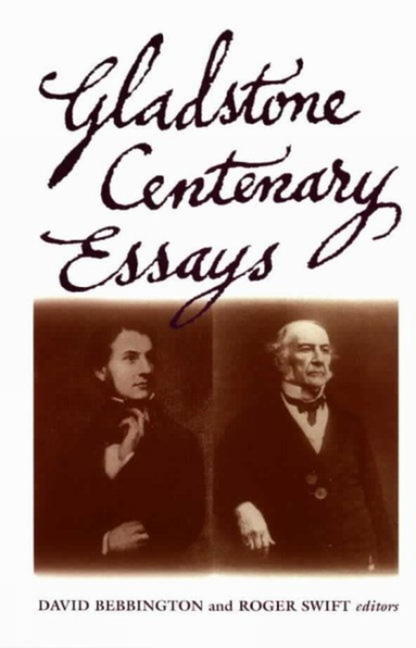Book contents
- Frontmatter
- Contents
- Contributors
- List of Illustrations
- Preface
- Acknowledgements
- Abbreviations
- Introduction
- Gladstone, Chalmers and the Disruption of the Church of Scotland
- ‘The Strict Line of Political Succession’? Gladstone's Relationship with Peel: An Apt Pupil?
- Gladstone and Homer
- Gladstone and Parliamentary Reform
- Gladstone, Liberalism and the Government of 1868–1874
- Gladstone and Cobden
- Networking through Sound Establishments: How Gladstone Could Make Dissenting Sense
- Gladstone and Irish Nationalism: Achievement and Reputation
- In the Front Rank of the Nation: Gladstone and the Unionists of Ireland, 1868–1893
- Exporting ‘Western & Beneficent Institutions’: Gladstone and Empire, 1880–1885
- Gladstone's Fourth Administration, 1892–1894
- ‘Carving the Last Few Columns out of the Gladstonian Quarry’: The Liberal Leaders and the Mantle of Gladstone, 1898–1929
- William Ewart Gladstone: A Select Bibliography
- Index
Preface
- Frontmatter
- Contents
- Contributors
- List of Illustrations
- Preface
- Acknowledgements
- Abbreviations
- Introduction
- Gladstone, Chalmers and the Disruption of the Church of Scotland
- ‘The Strict Line of Political Succession’? Gladstone's Relationship with Peel: An Apt Pupil?
- Gladstone and Homer
- Gladstone and Parliamentary Reform
- Gladstone, Liberalism and the Government of 1868–1874
- Gladstone and Cobden
- Networking through Sound Establishments: How Gladstone Could Make Dissenting Sense
- Gladstone and Irish Nationalism: Achievement and Reputation
- In the Front Rank of the Nation: Gladstone and the Unionists of Ireland, 1868–1893
- Exporting ‘Western & Beneficent Institutions’: Gladstone and Empire, 1880–1885
- Gladstone's Fourth Administration, 1892–1894
- ‘Carving the Last Few Columns out of the Gladstonian Quarry’: The Liberal Leaders and the Mantle of Gladstone, 1898–1929
- William Ewart Gladstone: A Select Bibliography
- Index
Summary
As this volume was in press, news came of the death of Professor Colin Matthew on 29 October 1999. His unexpected passing at the age of only 58 created a sense of shock in the scholarly community, especially amongst those who have taken an interest in the life of W. E. Gladstone. From its inception, Colin gave tremendous support to the project of holding an international conference to mark the centenary of the death of Gladstone. He participated in the conference at Chester, delivering, as the introduction below mentions, the opening public lecture. Colin was the obvious choice of speaker for the occasion because of his unparalleled expertise on the statesman. His first book, published in 1973, had described Gladstone as ‘for so long the unifier and inspirer of the Liberal party’ and for the next two decades he was occupied with explaining how that came to be. Already Lecturer in Gladstone Studies at Christ Church, Oxford, Colin ran a seminar at Oxford on features of the statesman's career, produced articles on aspects of his activities and prepared the material that was to emerge in the two volumes which he described as his ‘extended biographical essay’ on Gladstone in 1986 and 1995.
The biographical study was based on the introductions to the successive volumes of Gladstone's diaries that Matthew edited. The series of diaries, inaugurated in 1968 by M. R. D. Foot, included two volumes edited by Foot and Matthew in 1974 and then a further ten volumes issued by Matthew alone from 1978 to 1994. This massive enterprise was on any estimate a triumph of perseverance, but it was far more. The introductions reinterpreted Gladstone's achievement by integrating the private with the public life of the statesman, so showing how the personal preoccupations – with Christian reunion, for example – impinged on his conduct in national and international affairs. The footnotes in the diaries, copious but always unfussy, drew attention to the unpublished memoranda in the British Library whose significance Matthew fully appreciated. In later volumes some of them were published in the text of the diaries, together with selected correspondence and notes on cabinet meetings that greatly enhance the value of the edition.
- Type
- Chapter
- Information
- Gladstone Centenary Essays , pp. x - xiPublisher: Liverpool University PressPrint publication year: 2000



